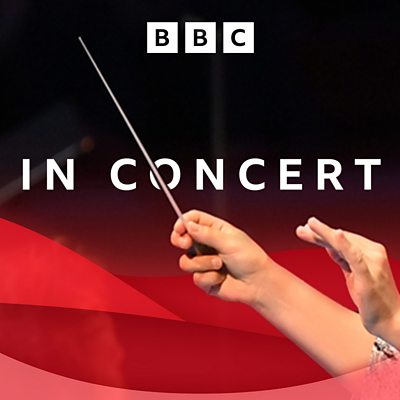Episode details

Available for 4 days
Mists swirl over the Welsh borders, a drowned cathedral rises glistening from the deep, and in fairytale Russia, we hear sounds of immortal triumph. Conductor Andrew Manze guides the Royal Liverpool Philharmonic Orchestra in Mussorgsky's Pictures at an Exhibition, in a spectacular, rarely-heard version by Sir Henry Wood, featuring every one of the orchestraâs famous collection of church bells. The concert begins with George Butterworth's rhapsody "A Shropshire Lad", followed by the UK premiere of a viola concerto by Liverpool composer and Artist in Residence Mark Simpson. His concerto, called "Hold your heart in your teeth" features former Radio 3 New Generation Artist Timothy Ridout as the soloist. You can also hear music by Graham Fitkin - "Metal", which was composed for the reopening of Liverpool Philharmonic Hall in 1995, and Sir Henry Wood's orchestral arrangement of Debussy's piano piece "La cathédrale engloutie". Recorded on 25th September at Liverpool Philharmonic Hall and presented by Penny Gore. George Butterworth: A Shropshire Lad Mark Simpson: Hold Your Heart in Your Teeth (Concerto for viola and orchestra) (UK premiere) Graham Fitkin: Metal Claude Debussy (arr. Sir Henry Wood): La cathédrale engloutie Modest Mussorgsky (arr. Sir Henry Wood): Pictures at an Exhibition Timothy Ridout (viola) Royal LIverpool Philharmonic Orchestra Andrew Manze (conductor) To listen on most smart speakers just say "ask ÃÛÑ¿´«Ã½ Sounds to play Radio 3 in Concert".
Programme WebsiteTracklist
- TrackArtist
- 1.A Shropshire LadA Shropshire LadGeorge Butterworth
- 2.Hold Your Heart In Your TeethHold Your Heart In Your TeethMark Simpson
- 3.Paraphrase on Themes from 'Eugene Onegin'Paraphrase on Themes from 'Eugene Onegin'Pyotr Ilyich Tchaikovsky